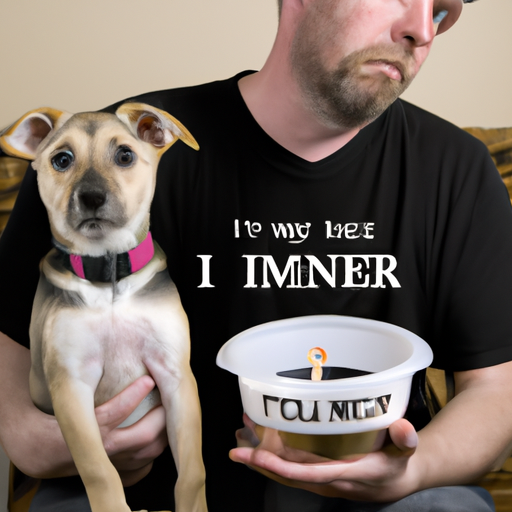As a caregiver to your puppy, you might often find yourself wondering about their dietary needs, especially when they skip a meal or two. Understanding how long a 7-month-old puppy can go without eating can help you ensure your pet’s health and well-being.
Understanding Your Puppy’s Appetite
Just like humans, puppies have different appetites. Some may eat voraciously, while others might be pickier eaters. However, it’s essential to monitor their eating habits, as it can directly impact their growth and development.
Around seven months, your puppy is still growing and needs regular meals to support their development. Most puppies should eat three to four times a day, although some may prefer to graze throughout the day.
If your puppy skips a meal, it’s not always a cause for concern. However, if they go more than 24 hours without eating, it could indicate a problem. It’s important to consult with a vet if your puppy hasn’t eaten in over a day.
Factors Affecting Puppy’s Appetite
Several factors can affect your 7-month-old puppy’s appetite:
- Illness or Infection: Just like humans, puppies lose their appetite when they’re sick. Common ailments such as intestinal worms, Parvovirus, or Kennel Cough can cause loss of appetite. If your puppy is showing other symptoms like vomiting, diarrhea, or lethargy, consult your vet immediately.
- Stress or Anxiety: Changes in the environment, like moving to a new house or introducing a new pet or family member, can lead to stress and anxiety in puppies, which can affect their appetite.
- Teething: At around seven months, your puppy may still be teething, which can make eating painful and hence, cause them to skip meals.
- Dietary Changes: If you’ve recently switched your puppy’s food, they might not like the taste or texture of the new food, leading to a decreased appetite.
What to Do If Your Puppy Isn’t Eating
Here are some steps you can take if your 7-month-old puppy isn’t eating:
- Monitor Their Behavior: Look out for any changes in your puppy’s behavior. Are they showing any signs of illness or discomfort? Have there been any significant changes in their environment recently?
- Try Changing Their Food: If your puppy isn’t eating their regular food, try offering them a different type of food. You can also try warming up their food slightly, which can make it smell more appealing.
- Consult Your Vet: If your puppy hasn’t eaten for more than 24 hours, or if they’re showing other signs of illness, it’s time to bring them to the vet.
How to Encourage Healthy Eating Habits
Here are some tips to encourage healthy eating habits in your puppy:
- Stick to a Schedule: Puppies thrive on routine. Feed your puppy at the same times each day.
- Control Portions: Overfeeding can cause your puppy to become picky. Follow the feeding guidelines on the dog food package or consult with your vet to determine the right portion size for your puppy.
- Limit Treats: Treats should make up no more than 10% of your puppy’s daily calorie intake. Over-reliance on treats can cause your puppy to become picky with their food.
- Provide a Calm Environment: Feeding your puppy in a quiet, calm environment can help reduce stress and anxiety during meal times.
FAQ
Q: How many times a day should I feed my 7-month-old puppy?
A: Most 7-month-old puppies should eat three to four times a day. However, the feeding frequency may vary depending on the breed and size of the puppy.
Q: My puppy is refusing to eat their new food. What should I do?
A: If your puppy is refusing to eat their new food, try mixing in some of their old food with the new one. Gradually increase the amount of new food over a week.
Q: My puppy is eating but still seems hungry all the time. Is this normal?
A: It could be normal, as puppies are usually active and require more food for their size compared to adult dogs. However, if your puppy seems excessively hungry, it could be a sign of worms or other health issues. It’s best to consult with a vet.
Q: How long can a 7-month-old puppy go without eating?
A: A 7-month-old puppy should not go more than 24 hours without eating. If your puppy hasn’t eaten in over a day, it’s important to consult with a vet.



